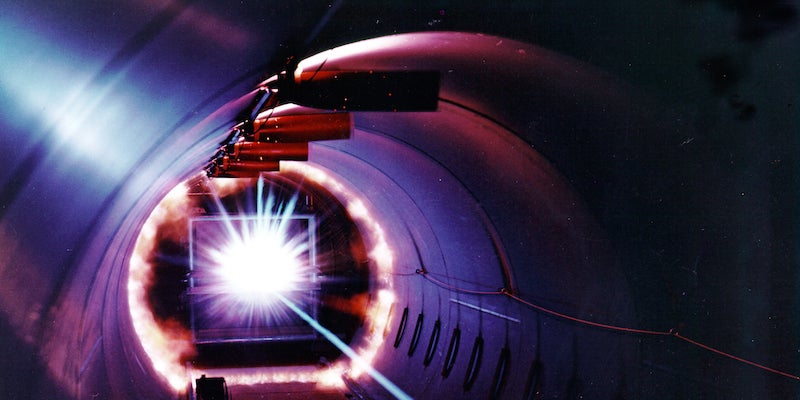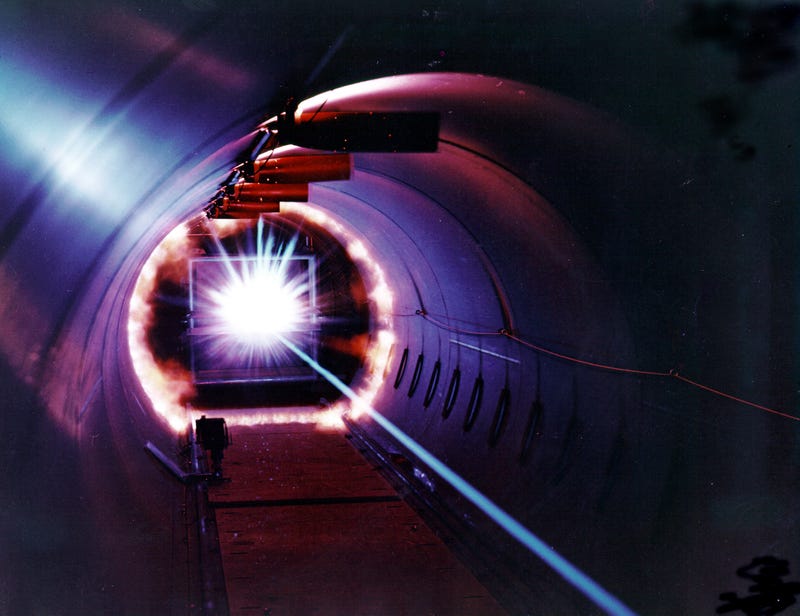Image may be NSFW.
Clik here to view.
January 1, 1963: This is what happens when a piece of space junk hits a spacecraft in orbit. While gorgeous, the energy flash of a hypervelocity impact packs a serious punch.
Image may be NSFW.
Clik here to view.
A projectile launched at 7,600 meters per second (17,000 mph) at a solid surface produced this beautiful starburst energy flash in an effort to simulate collisions between spacecraft and orbital debris. The potential for these hypervelocity collisions make even tiny grains a major hazard for spacecraft.
The test was conducted at the Hypervelocity Ballistic Range at NASA’s Ames Research Center in Mountain View, California.
Top image: An energy flash produced by a hypervelocity impact between a projectile and a solid surface. Credit: NASA
Contact the author at mika.mckinnon@io9.com or follow her at @MikaMcKinnon.
